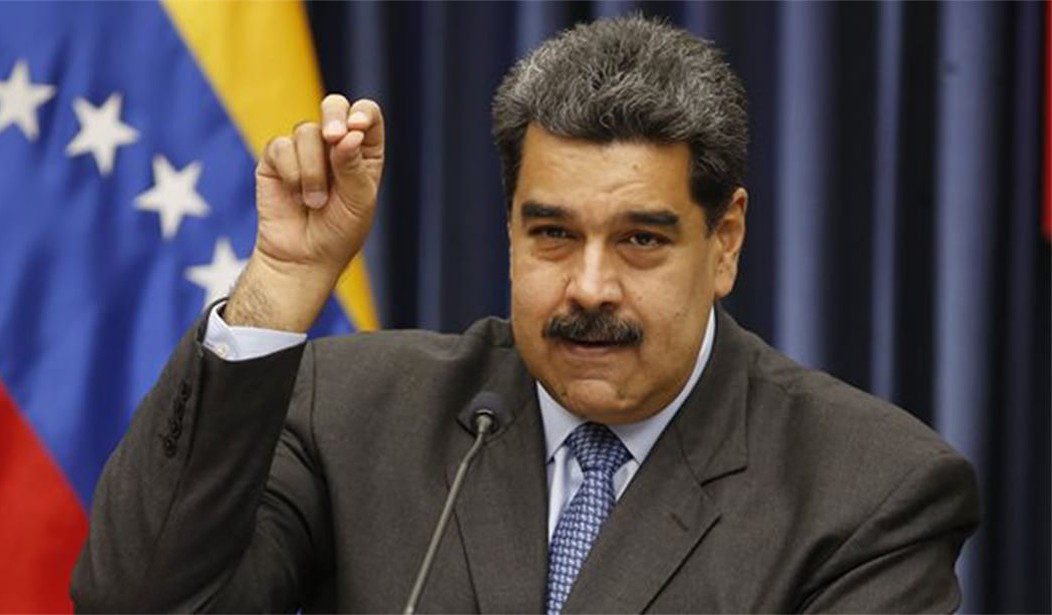The United States and Venezuela have agreed to a prisoner exchange in which a key ally of Venezuelan President Nicolás Maduro was freed in exchange for 10 Americans imprisoned in the South American nation.
The move is part of President Joe Biden’s efforts to strengthen ties with the Venezuelan government, which Maduro runs as a dictator. However, some have taken issue with this decision.
The deal represents the Biden administration’s boldest move yet to improve relations with the major oil-producing nation and extract concessions from the self-proclaimed socialist leader. The largest release of American prisoners in Venezuela’s history comes weeks after the White House agreed to suspend some sanctions, following a commitment by Maduro to work toward free and fair conditions for the 2024 presidential election.
Maduro celebrated the return of Alex Saab as a “triumph for truth” over a U.S.-led campaign of lies, threats and torture against someone his government considers a Venezuelan diplomat who was illegally arrested on a U.S. warrant.
“President Biden,” a defiant Maduro said with Saab at his side for a hero’s welcome at the presidential palace, “Venezuela stands strong, following its own model. We won’t be anyone’s colony.”
Among the American prisoners being freed are former Green Berets Airan Berry and Luke Denman, who were involved in a failed coup attempt against Maduro in May 2020. They were serving 20-year sentences in Venezuela.
Saab’s release appears to be a major win for Maduro. The Colombian businessman had been detained in Miami on money laundering charges, which angered the Venezuelan government; it claimed he was a special envoy entitled to diplomatic immunity.
The exchange also involves the extradition of “Fat Leonard” Glenn Francis, a former U.S. defense contractor who pleaded guilty to a comprehensive bribery scheme involving the U.S. Navy. It was known as one of the largest corruption scandals in the history of the Navy. He was under house arrest in San Diego in September 2022 when he decided to flee. He was later apprehended by Venezuelan authorities while trying to board a flight at the Simon Bolivar International Airport.
The White House’s decision to participate in this prisoner exchange has garnered criticism, especially related to Saab’s release. Some have raised concerns about this concession undermining the U.S.’s stance on Venezuela’s atrocious human rights record and authoritarian governance. Moreover, it also highlights broader implications for American travelers.
But the exchange, a major U.S. concession, angered many hard-liners in the Venezuelan opposition who have criticized the White House for standing by as Maduro has repeatedly outmaneuvered Washington after the Trump administration’s campaign to topple him failed.
Others expressed concerns that this move might inspire other bad actors to kidnap American citizens to extract concessions from the United States government.
The swaps have raised concerns that the U.S. is incentivizing hostage-taking abroad and producing a false equivalence between Americans who are wrongfully detained abroad and foreigners who have been properly prosecuted and convicted in U.S courts.
A member of the National Security Council from 2017-19, focusing on Latin America, Juan Cruz, called it a "bad precedent":
What happened to the separation of powers? Normally you would have to wait [sic] a defendant to be found guilty in order to be able to pardon him for a swap. This is an especially bad precedent with a Trump 2.0 potentially around the corner. It invites winking and nodding from the executive.
Either way, this prisoner swap could be a significant step that might have a tremendous impact on diplomatic relations between the U.S. and Venezuela. However, it does underscore worries about the White House’s approach to dealing with authoritarian regimes and could carry great risks for U.S. foreign policy in the region.













Join the conversation as a VIP Member